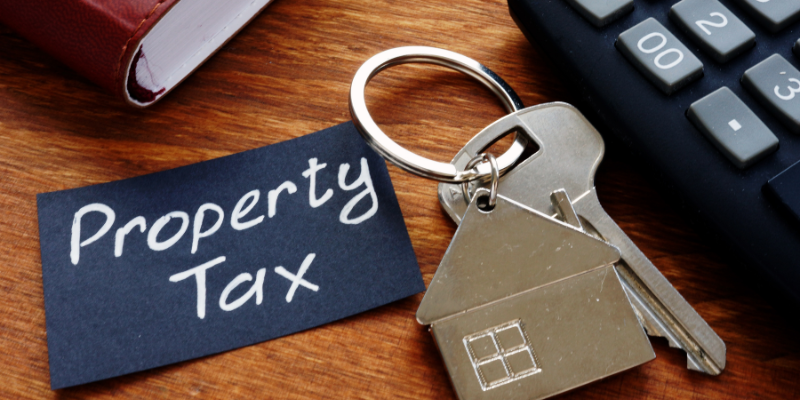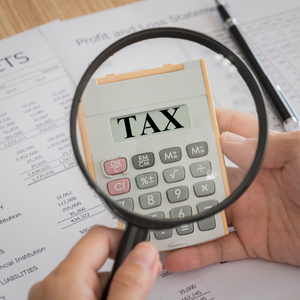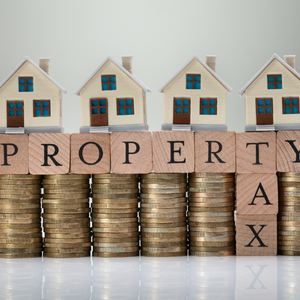
Houston Property Tax Trends: A Historical Overview
The quantum shifts in Houston’s property tax rates over the years have been the result of numerous economic, political, and social factors. As yielding tax revenue has always been Houston’s central objective, property taxes have mostly reflected the city’s growth, competitiveness, and the business cycle in Texas in general.
The early 2000s marked the emergence of new growth centers, combined with subdued property tax rates, which created favorable conditions for homeowners and real estate investors. New businesses and an influx of residents were moving to Houston. The rapid growth led to a strain on public services and infrastructure.
The tax revenue generated from the recurring property tax rate revisions proved insufficient to fund the public services, which were witnessing steep demand from public schools, the overhaul of roads, and emergency services infrastructure. In addition, the housing market has emerged as a key determinant of property taxes in Houston.
During periods when Houston’s real estate market was flourishing, be it a surge in the oil industry, or low interest rates incentivizing housing demand, the property values—and thus, taxes—were steep. The opposite was true in periods of economic slowdown—or following natural disasters like Hurricane Harvey—where taxes were reduced and properties were heavily reassessed.
Grasping these historical trends is vital for current homeowners and prospective real estate investors, including those working with Sell My House Fast Houston, who are looking to navigate Houston’s ever-changing market landscape, slotted for financial investment.
Understanding Property Tax Rates in Houston, Texas

For homeowners and real estate investors, understanding property tax rates in Houston, Texas, is crucial for making informed financial decisions. In Houston, property taxes are determined based on the assessed value of the property, which is determined by the Harris County Appraisal District.
These taxes support essential services, including public education, emergency services, and infrastructure maintenance within Houston and the surrounding areas. Several entities for Houston, Harris County, and local school districts as well as special districts formulate the property tax rate, and each of them sets rates for public services.
These entities in Houston set the rate based on budgeting needs and measures approved by voters. In Houston, the effective property tax rate varies widely for different property locations due to the school district and municipal management zone in which the property is located.
Awareness of these nuances assists homeowners in budgeting for annual expenses, and helps real estate investors in estimating potential returns on investment. In this ever-changing Texan market, homeowners and real estate investors need to stay informed about any changes to the property tax rate to anticipate financial obligations.
Factors Influencing Property Tax Assessments in Houston
There are several important aspects of property tax assessments that Houston homeowners and real estate investors ought to know. One of these is the property’s appraised value, which the Harris County Appraisal District determines based on several factors, such as prevailing market conditions and the property’s size, location, and features.
As market trends show, the demand and supply of real estate in the different Houston neighborhoods impact property values. The local economy also affects property assessments; for example, an economic upsurge tends to increase property value because of the additional jobs and people coming to the area.
Also, the addition of new features and renovations to an existing property leads to higher assessments because such changes enhance the market value of the property. Also, omissions like homestead exemptions as well as those granted to seniors and veterans do lower taxable value and have an impact on the assessment outcome.
Like other local government bodies, school districts and city councils set tax rates that, together with the property tax assessments, determine the total tax value for the homeowner. Ensuring a grasp of all the details outlined above helps one maneuver better around the property tax maze that Houston offers.
The Role of Market Value in Determining Houston’s Property Taxes
In Houston, the market value of a property influences the property tax rates, which impacts the expenditure by homeowners and real estates investors. Market value, as a definition, refers to the value which a property could sell in the present market conditions.
Harris County Appraisal District is charged with the responsibility of determining the market value of a property for assessment purposes every year. Consequently, this also in-turn impacts the amount of taxes to be paid. It is apparent that high market values in the vicinity will mean high taxes to be paid, as they constitute the base for tax rates to be applied.
This process of assessment uses numerous factors as location, area of the property, condition of the property and sales of other similar houses in the area. It is imperative for real estate investors and homeowners to know the market price of the property because it changes every year and any upwards movement will mean higher tax liability.
Knowledge of these issues enhances effective planning and the establishment of a targeted minimum return on investment in Houston’s real estate market.
How to Calculate Your Property Taxes in Houston
To calculate property tax in Houston, you must follow a process along with several components that affect the final amount you owe in tax. The first and foremost step is determining the appraised value of the property, which the Harris County Appraisal District assesses every year.
This valuation is the market value of your home or real estate as of the first of January each year. After you obtain this value, you need to apply the local property tax rate which is set by various authorities including school, municipal utility and city districts within Houston.
These authorities often set these rates as a percentage of $100 assessed value. To accurately determine your tax liability, you must multiply the appraised value by the combined tax rate applicable at your property’s location.
In addition to tax liability, homeowners need to consider any exemptions including but not limited to homestead and senior citizen exemptions that can significantly reduce the taxable value. A proper understanding of these components is important not only for homeowners but for real estate investors seeking to reduce and effectively manage their financial responsibilities in Houston’s ever changing real estate market.
Navigating the Harris County Appraisal Process for Homeowners
Understanding the appraisal process is critical for homeowners who want to grasp the intricacies of property tax rates in Houston. The process starts with the Harris County Appraisal District (HCAD), which conducts an annual assessment of each property to establish the market value.
Homeowners should familiarize themselves with how HCAD assesses properties based on location, size, and the overall condition of the property. Grasping these factors improves homeowners’ awareness of and prepares them for assessment, tax, and value changes in the future.
Homeowners need to scrutinize their appraisal notices. They should cross-check the estimates with sales data for their neighborhood as well as tax estimate for their property. Discrepancies between the appraisal and market value could justify a formal appeal, thus homeowners can contest their costs through a value protest.
This process may require property owners to collect supporting documentation, such as certified appraisals and market analysis, to advance their claim. Such participation in the appraisal process would not only grant property owners the ability to contest their tax appraisal, but also assist them in managing their tax liability by eliminating unnecessary costs.
Exemptions and Reductions for Houston Property Taxes
In Houston, understanding property tax exemptions and reductions can help lower the costs incurred by homeowners and real estate investors. Significant exemptions offered comprise the homestead exemption which provides a reduction in assessed value for those occupying the dwelling as their primary residence.
In addition to lowering the taxable value, this exemption provides safeguards that protect individuals from substantial increases in property taxes. Special exemptions for veterans, individuals with disabilities, and senior citizens who qualify, aged 65 and above, offer a greater reduction in their tax burden.
For example, the senior exemption enjoys an additional benefit of a substantial reduction in property taxes incurred by them. Additionally, disabled veterans receive meaningful relief from varying degrees of exemption depending upon their disability rating.
Furthermore, properties utilized for agricultural purposes receive a special valuation that assesses them based upon their productivity rather than market value. Grasping the concepts of these exemptions is essential in balancing savings with compliance in the ever-changing real estate landscape of Houston.
Understanding the Homestead Exemption Benefits in Texas
In Texas, the homestead exemption is one of the most useful tools available to homeowners seeking to lower their property taxes. This exemption lowers the property taxes owed by reducing the appraised value of the home.
For homeowners around Houston and the rest of Texas, this can translate into significant savings every tax year. To qualify for the homestead exemption, one must have the property as their principal residence by January 1 of the tax year.
The standard exemption also reduces the value of the property for taxation by school districts by $40,000. Further, counties may offer an optional percentage-based exemption in addition to this amount.
An additional exemption is provided to senior citizens aged 65 or older, the elderly, as well as disabled persons, which reduces their financial burden further. Such exemptions help to not only stabilize property ownership, but also enforce financial property ownership in rapidly changing real estate markets such as Houston’s.
Both new and seasoned homeowners need to understand these benefits. New homeowners need to understand these benefits in-order to maximize their savings while seasoned real estate investors would want to optimize their returns on the residential properties considering Texas’s highly competitive environment.
The Impact of School Districts on Houston’s Property Taxes
In Houston, property taxes are primarily affected by the school districts in which the properties are located, due to the fact that public education is funded mainly out of property taxes.
Real estate buyers and investors need to understand school districts’ differing tax rates, which stem from budgetary needs and voter-approved levies, because these taxes are a crucial factor in the overall property tax liability. Increased demand, fueled by the presence of highly rated schools, drives up property values, which also drives up taxes.
Lower-rated school districts, on the other hand, struggle with property values and, in a bid to fund education, may need to impose higher tax rates to meet the spending needs of the district. Understanding the boundaries set by districts and how they change property taxation is critical for anyone looking to buy or invest in real estate in the neighborhoods of Houston.
Buyers and investors can determine the most cost-effective investments and the highest potential returns by analyzing the tax rates and estimated returns for each school district.
How Local Government Budgets Affect Property Taxes in Houston
In Houston, property taxes are closely tied to the budgeting needs of local authorities like school districts, county governments, and local municipal services. The critical public services like education, emergency response, public libraries, and infrastructure maintenance incur spaced spending, which public budgeting needs to streamline.
Meeting the financial needs of these authorities results in an annual property tax assessment. Each year, these entities reconvene to reassess financial needs and set tax rates based on revenue required to meet spending needs. Houston property tax rates illustrate fiscal cooperation because even a single jurisdiction has multiple tax rates. The blended property tax rate reflects levies from multiple taxing jurisdictions. Therefore, changes in one budget can have wide-reaching consequences for homeowners and real estate investors.
Consider, for instance, the scenario where a school district needs to improve some educational programs. This triggers the proposal to adjust the portion of the property tax rate. The same reasoning can be applied to city and county governments when financing infrastructure development, thus triggering fiscal policy aimed at public safety.
For homeowners and real estate investors, comprehending local fiscal policy and the intergovernmental budgetary interplay between local government spending and revenue collection is vital for managing annual tax liabilities because Houston’s numerous taxing jurisdictions shift spending priorities based on diverse fiscal goals.
The Effect of Economic Factors on Real Estate and Taxation in Houston
The economy affects the real estate market and property tax rates in Houston, impacting residents and investors alike. More Houston jobs in the energy, health, and technology sectors, usually bring in more people which drives up the housing demand and subsequently increases the value of real estate.
This change in the property value assessment affects property taxes which, in turn, increases the tax revenue collected. Moreover, seasonal local employment opportunities impact the household income, either allowing people to purchase homes and real estate or deterring them to invest in real estate.
The housing market is also affected by interest rates: increased interest stifles market activity while lower rates tend to stimulate it, allowing markets to aggressively purchase real estate, which could further increase the prices of homes. Additionally, times of economic slump marked by lower real estate demand combined with an increase in inflation tend to lower the market activity as consumer confidence and employment rates drop.
The culmination of all these factors and the economy itself affects the real estate market in Houston and changes the amount of property taxes collected by the local authorities to fund public services such as infrastructural projects and education. Those in the Houston real estate market and the property tax system must understand these relationships to successfully navigate them.
How New Developments Affect Neighborhood Tax Rates in Houston

It is no secret that new developments in Houston can affect neighborhood property tax rates because of assessed property values and local infrastructure demands. New projects either residential or commercial are often accompanied by an increase in valuation of nearby businesses and homes which directly impacts property taxes.
Such developments bring additional amenities along with enhanced public services and infrastructure. Coupled with increased economic activity, these factors add to the desirability and market value. As a result, investors and homeowners may find that their property tax bills have increased as a result of appraisal districts increasing valuation due to these new services.
Additionally, Houston is faced with an increased need for public utilities and services because of the businesses and people relocating to the area. This may drive up tax rates to improve necessary infrastructure. Those who invest or own property in Houston neighborhoods undergoing significant development need to be cognizant of these issues.
Strategies for Managing High Property Taxes in Houston
For homeowners and real estate investors in Houston, managing elevated property taxes necessitates careful foresight, on-going assessment, and strategic action. One viable approach is challenging assessments as with Houston property taxes losing a challenge can be costly, investing in gathering recent comparable sales, and documenting any property damage often pays off.
Furthermore, taking advantage of any applicable exemptions is also beneficial, as in the case of the homestead exemption which eases the tax burden on owners of primary residences, or the exemptions provided to seniors and disabled veterans which goes further. There is also the possibility of offsetting some property tax burdens through tax laden energy-efficient improvements which grant some tax credits or deductions.
An alternative approach for real estate investors includes targeting commercial properties or integrating into their portfolio areas with comparatively lower tax rates within the Greater Houston area which may provide other tax benefits. Monitoring local government and property tax policy changes as well as upcoming policy shifts is also crucial for making informed shifts to one’s investing strategy.
Working with a property tax consultant or a lawyer versed in the field can provide actionable insights for one’s unique scenario and guarantee the legal framework while providing optimal savings through ensuring every legal avenue is explored.
Common Mistakes to Avoid When Filing a Property Tax Protest in Houston
When filing a property tax protest, real estate homeowners and investors in Houston tend to overlook critical details that could hinder their attempts to appeal their property taxes. Most notably, gathering a recent appraisal or sales of comparable properties within the area has proven to be a hurdle to challenging a property’s appraised value.
Another prevalent issue is the failure to file a protest with the Harris County Appraisal District within the strict timeline. Submitting anything after the appraisal deadline is a no go. Furthermore, some people do consider the absence of in person hearings not a big issue. While missing hearings is not a big issue for some, the reality is the appraisal review board allows one to argue their case in person and rectify any inconsistencies which is not the case for any written arguments.
Many also do not understand that the hearings are a culmination of the work done prior to that date, and as such, one has to know the prevailing market conditions and economic drivers in their subtended area. And, arguing with the board based on solely opinion rather than facts after doing no leg work to back the claim, clearly, lowers one’s chance for success.
It is undeniable that there are basic mistakes that, if avoided, could improve one’s success in appealing Houston property tax assessments.
Legal Options for Disputing Your Property Assessment in Houston
Homeowners and real estate investors in Houston often explore legal avenues to contest property assessments, especially in situations where the valuations seem incorrect or highly unfavorable. For individuals keen on disputing property tax assessments in Houston, understanding the appeal procedures is essential.
As the initial step, property owners may lodge a protest with the Harris County Appraisal District along with supporting documentation such as comparable sales, recent appraisals, or other pertinent data that fortifies their claims for a decreased valuation. Should these individuals find the resolution unsatisfactory, they are entitled to advance the issue to an Appraisal Review Board hearing where their claims can be further scrutinized.
In cases of more intricate disputes, hiring a skilled property tax attorney can be of great help. Such attorneys are well-versed in Texas property tax laws and can offer insights specific to individual scenarios. Furthermore, parties who wish to avoid a more confrontational process can utilize mediation or arbitration, which are both forms of alternative dispute resolution.
With these legal options available, property owners in Houston are capable of optimizing their tax relief and ensuring equitable valuations of their properties.
Community Resources for Assisting with High Property Taxes
For homeowners and real estate developers alike, maneuvering through the intricate network of property taxes in Houston can be overwhelming, but there are many community-based support services available to help manage the financial burdens. Some services, like Harris County Appraisal District, help families make sense of their property tax bill and walk through the process of appealing any assessed values they may be contesting.
Nonprofits hold information sessions on the criteria of the property tax exemptions and tax reductions available to them which include but are not limited to the homestead exemption and tax benefits for seniors or disabled persons. Community centers also hold specialist seminars focused on giving personalized guidance on financial and budget planning to help families deal with the increasing property taxes.
Participating in government services can be beneficial in understanding any new proposed initiatives which may alter the property tax for the year or introduce new tax relief initiatives and support. With the information provided, the homeowners along with real estate developers can make strategic financial decisions about their properties while taking full advantage of the financial relief offered.
Balancing Public Services and Residential Tax Burdens
In Houston, balancing the need for essential public services with the residential tax burden is a critical aspect of understanding property tax rates. Property taxes are a primary source of funding for local services such as schools, police and fire departments, infrastructure maintenance, and public health initiatives.
Homeowners and real estate investors must recognize how these taxes directly influence the quality and availability of community services while also impacting their financial planning. The challenge lies in ensuring that property tax rates are set at a level that adequately funds these vital services without imposing an undue burden on residents.
Local government officials work to strike this balance by considering factors like assessed property values, budgetary needs of various public sectors, and economic conditions affecting taxpayers. Understanding this dynamic helps homeowners and investors make informed decisions about property ownership in Houston, as they weigh the benefits of robust public services against potential increases in their annual property tax bills.
How Much Are Property Taxes in Houston, TX?
In Houston, TX, property taxes are a significant concern for homeowners and real estate investors alike. The property tax rate in Houston is set by multiple local governing bodies, such as the Harris County Appraisal District, other local district schools, and even some municipalities. The property tax rate in Houston is approximately
31% of the assessed home value. However, averaging does not tell the full story as it varies due to location and applicable exemptions. These rates can result in a staggering annual tax liability for homeowners based on their property’s assessed value. Real estate investors, as well, are required to consider these rates when evaluating their Houston area investment properties for ROI. It is equally important for Houston dwellers and investors to be up to date with property tax rates and assessment methods due to their planning implications. Clarity over the taxes and their calculation methods helps these stakeholders make knowledge-backed decisions, whether buying or investing, in the welcoming real estate market of Houston, Texas.
Why Are Property Taxes So High in Houston, TX?
The combination of factors influencing homeowners and real estate investors makes Houston’s property taxes particularly high. One of the factors is the absence of a state income tax in Texas, as this encourages a greater reliance on property taxes to funding essential public services, such as education, infrastructure, and emergency services.
In Houston, the property tax rate is set by various taxing entities, such as school districts, as well as municipal utility districts (MUDs) and the city. These entities try to meet their divisions’ budgetary needs, and that adds to the financial burden.
Moreover, Houston’s burgeoning population and rapid urban expansion has increased the public services needs alongside infrastructure upgrades, adding to property tax rates. The appraisal process is just as important; properties in Houston are appraised every year by the Harris County Appraisal District (HCAD), and their market-value based assessment of property taxes often results in increased market-value assessments.
In Houston, the dynamics of economic growth and local government are pertinent for real estate investors and homeowners to understand, alongside the policies that accompany property tax assessments and affect the financial outcomes of property ownership.
Which Houston Suburb Has the Highest Property Taxes?

When looking at property taxes in the Houston area, homeowners and investors need to examine how the suburbs differ in their respective rates. Pearland is noted to have some of the highest property rates among the numerous suburbs.
This suburb, located just south of Houston, is known for its rapid growth and development, which is often accompanied by demands for local infrastructure and publicly provided services. This is the reason why, around Houston, other areas have a much lower property tax in comparison to Pearland.
School district funding and other municipal works also affect the property tax, and for homebuyers or investors, it is critical to examine the property tax while looking at Pearland, Katy, and Sugarland. Objective assessment make tax decisions easier.
In this respect, the competitive Houston real estate market becomes much easier to navigate after the Brookshire and Harris County areas. Value for money assessment becomes a much easier endeavor.
Selling a property in Houston isn’t just about finding the right buyer—it’s about understanding how property tax rates can impact your bottom line. By staying informed on Houston’s tax landscape, you can strategically time your sale, set competitive pricing, and avoid surprises at closing. For sellers, this knowledge is especially valuable when evaluating offers from investor home buyers in Houston or nearby cities and negotiating terms that maximize your return.
With the right insights and guidance, you can turn complex tax rules into a selling advantage. Whether you’re offloading a single-family home, an investment property, or a portfolio of rentals, or working with a company that buys homes in Katy or nearby cities, understanding Houston’s property tax structure empowers you to make informed decisions. Partnering with professionals who know the market inside and out ensures you not only sell faster but also keep more of your profits when the deal closes.
Concerned about how the property tax rate might affect your home sale? Whether you need to sell quickly, avoid costly repairs, or prefer a hassle-free process, Sell My House Fast Houston is here to help. We provide fair cash offers, manage all the details, and make the transaction smooth from start to finish. Ready to sell or have questions about your property’s value and taxes? Contact us at (281) 502-4750 for a no-obligation offer and see how easy it can be to move forward.
Helpful Houston Blog Articles
- Short Sales To Relatives In Houston, TX
- How to Remove Bad Tenants in Houston, TX
- Appraisal Required Repairs For Houston, TX
- Leaving Your Houston, TX, Home Vacant
- Sell Your House In Forbearance In Houston, TX
- Selling A House With Foundation Problems In Houston, TX
- Paperwork For Selling Your Houston, TX, Home By Owner
- Selling Your Inherited House In Houston, TX
- Guide To Selling Your Houston, TX, Home By Owner
- Effective Strategies To Prevent Home Foreclosure In Houston, TX
- Property Management Professionals In Houston, TX
- Family-friendly Activities In Houston, TX
- Understanding Houston, TX Property Tax Rates

| EFFECTIVE TAX RATE | BRAZORIA COUNTY | BRAZORIA COUNTY, TX | BRAZORIA | BRAZORIA COUNTY, TEXAS | HOUSTON-THE WOODLANDS-SUGAR LAND |
| HARRIS COUNTY, TX | PAYMENT | MORTGAGE | U.S. | ASSESSOR | SMARTASSET |
| SURCHARGE | FEE | FORT BEND COUNTY | INBOX | REFUND | |
| TAX REFUND | REAL PROPERTY | REAL PROPERTIES | MEDIAN | FINANCIAL ADVISOR | FEEDBACK |
| DEBT | CREDIT CARDS | CALCULATOR | THE TAX RATE | THE PROPERTY TAX RATES |
